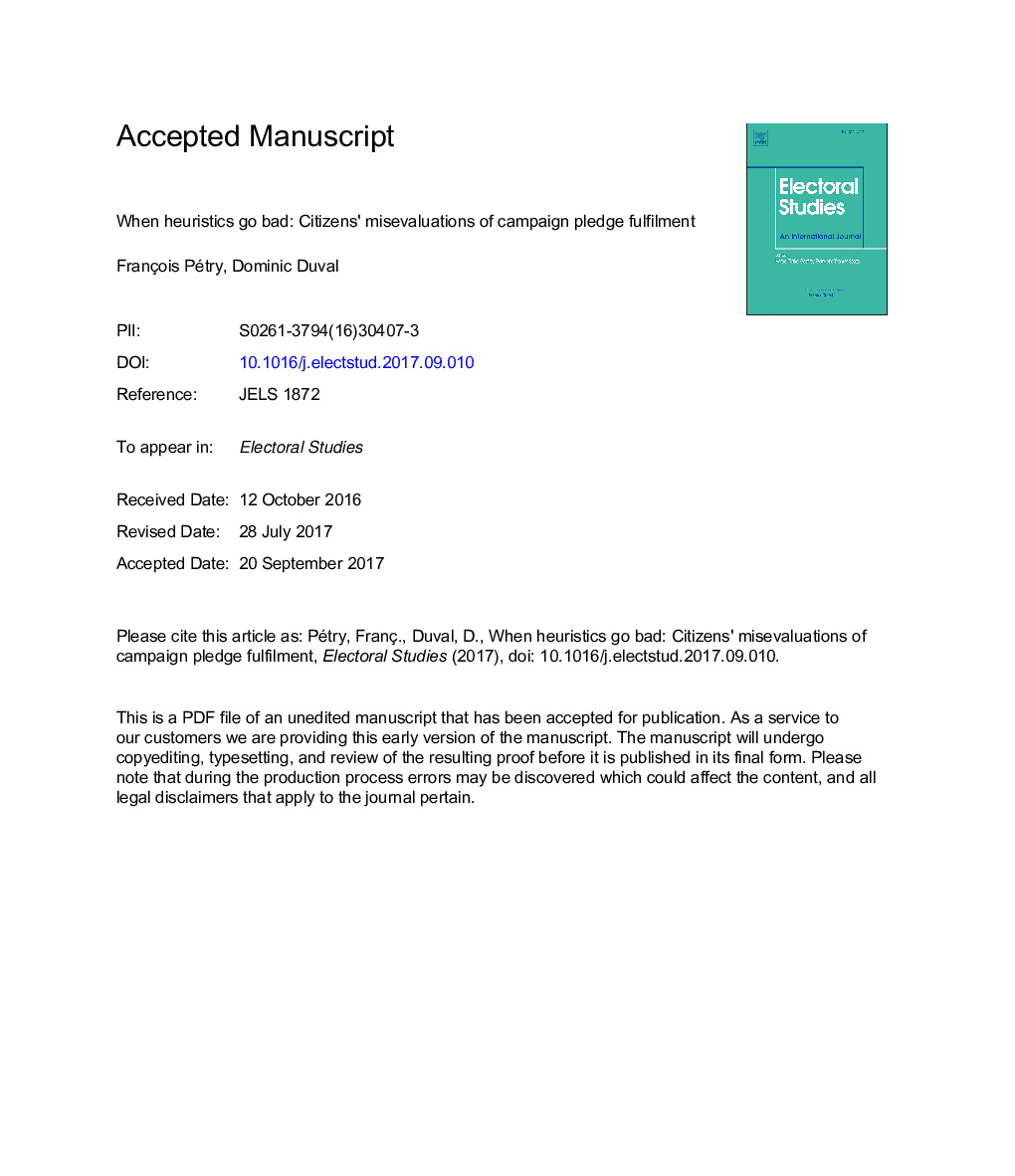| Article ID | Journal | Published Year | Pages | File Type |
|---|---|---|---|---|
| 5115503 | Electoral Studies | 2017 | 36 Pages |
Abstract
We use data from a large survey of Quebec citizens to clarify under what conditions the use of heuristic shortcuts increases or decreases the accuracy of citizens' evaluations of specific pledge fulfilment. In line with the rational public hypothesis, we find that citizens' evaluations often conform to the actual pledge fulfilment performance of the government. However, consistent with the “bad heuristics” and “motivated reasoning” hypotheses, we find that many citizens' evaluations are biased. Some stereotypes induce citizens to evaluate pledges positively irrespective of actual performance, misleading them into making inaccurate evaluations of pledges that are actually unfulfilled. Other stereotypes prompt citizens to evaluate pledges negatively irrespective of actual performance, misleading them into making inaccurate evaluations of pledges that are actually fulfilled. Although political knowledge increases the accuracy of evaluation of fulfilled pledges, it fails to increase the accuracy of evaluations of unfulfilled pledges.
Related Topics
Social Sciences and Humanities
Social Sciences
Geography, Planning and Development
Authors
François Pétry, Dominic Duval,
